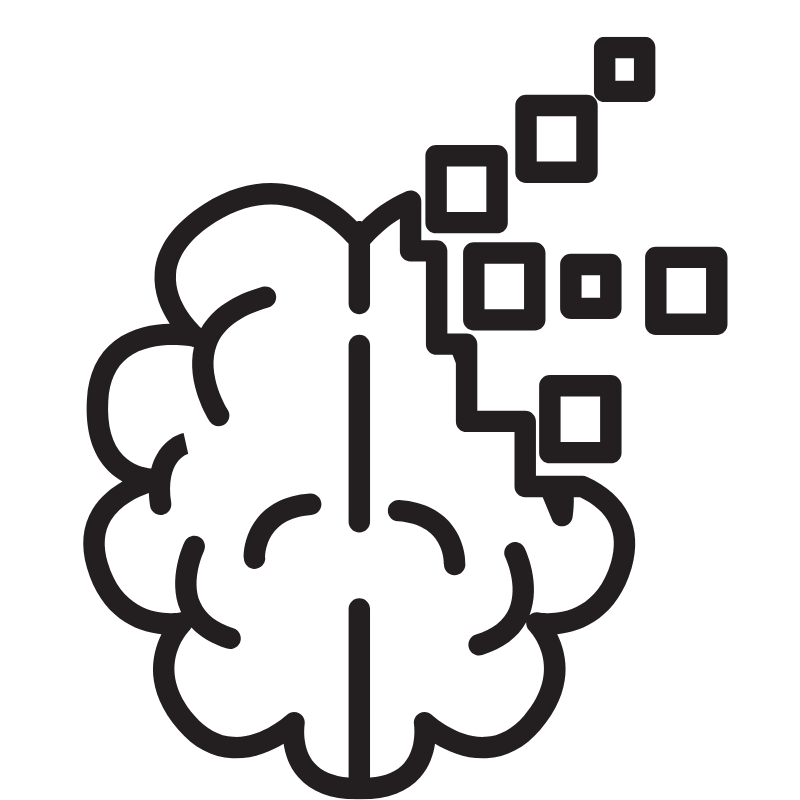The human brain is an extraordinary organ, capable of processing complex thoughts, forming memories, and enabling us to navigate the world. Yet, like any other part of the body, it is susceptible to deterioration over time. Understanding why and how this happens is crucial to both improving brain health and fighting cognitive decline.
In this article, we’ll explore the science behind brain deterioration, the factors contributing to it, and what we can do to help preserve cognitive function as we age. Whether you’re concerned about the effects of aging or simply curious about how the brain works, this guide will give you the insights you need.
1. The Natural Aging Process: How Time Affects the Brain
As we age, our brains undergo a variety of natural changes. These changes, while often gradual, can impact both the structure and function of the brain.
Shrinkage of Brain Volume
One of the most noticeable changes as we age is the shrinkage of certain brain regions. The hippocampus, which plays a vital role in memory and learning, is one of the first areas to show signs of deterioration. Brain cells, known as neurons, lose their ability to communicate efficiently, and the connections between them weaken. This leads to a gradual decline in cognitive abilities, including memory recall, problem-solving, and processing speed.
Slower Neural Transmission
The communication between neurons also becomes slower with age. This is due to a decrease in the production of neurotransmitters, the chemicals that carry messages between nerve cells. As a result, older individuals may experience difficulty focusing, recalling information, or processing new data as quickly as they could in their younger years.
2. Neurodegenerative Diseases: Accelerating Brain Deterioration
While aging contributes to cognitive decline, some people experience accelerated brain deterioration due to neurodegenerative diseases. These conditions involve the progressive death of brain cells and can lead to severe cognitive impairment.
Alzheimer’s Disease
Alzheimer’s Disease The most prevalent type of dementia, impacting millions of individuals globally. It is characterized by the build-up of abnormal protein deposits in the brain, which disrupts the normal function of brain cells. Over time, this leads to memory loss, confusion, and personality changes. Alzheimer’s typically affects older adults, but early-onset forms can strike individuals in their 40s or 50s.
Parkinson’s Disease
Parkinson’s disease is another example of a neurodegenerative condition that leads to brain deterioration. It primarily affects movement and coordination but can also impair cognition over time. The disease involves the loss of dopamine-producing neurons in the brain, which disrupts motor control and can lead to memory and thinking difficulties.
Huntington’s Disease
Huntington’s disease is a rare genetic disorder that leads to the gradual deterioration of brain neurons. Symptoms typically start to appear in middle age, and the disease leads to motor dysfunction, mood changes, and cognitive decline.
3. Lifestyle Factors That Contribute to Brain Deterioration
While genetics and aging are major contributors to brain deterioration, lifestyle choices also play a significant role. Poor habits can accelerate cognitive decline and increase the risk of neurodegenerative diseases.
Chronic Stress
Stress is one of the most damaging factors for the brain. Chronic stress can lead to an overproduction of cortisol, a hormone that, in high levels, can damage brain cells and impair memory. Prolonged stress can also shrink the hippocampus, further exacerbating cognitive decline.
Poor Diet and Lack of Exercise
A diet rich in unhealthy fats, sugar, and processed foods can lead to inflammation in the brain, which may accelerate aging and increase the risk of neurodegenerative diseases. On the other hand, regular exercise and a balanced diet, rich in antioxidants, omega-3 fatty acids, and vitamins, can support brain health and potentially reduce the risk of cognitive decline.
Sleep Deprivation
Sleep plays an essential role in consolidating memories and removing toxins from the brain. Chronic sleep deprivation has been linked to impaired memory, mood disturbances, and even an increased risk of Alzheimer’s disease. Getting enough quality sleep is crucial for maintaining brain function.
4. Protecting Your Brain: How to Slow Down Brain Deterioration
While some degree of brain aging is inevitable, there are several steps we can take to help preserve cognitive function and protect our brains from accelerated deterioration.
Mental Stimulation
Engaging in Mentally Stimulating Activities like reading, solving puzzles, or acquiring new skills can support cognitive function. Challenging your brain keeps neurons active and encourages the formation of new neural connections, which can help offset age-related decline.
Physical Activity
Exercise Beneficial for both physical health and brain function. Regular physical activity increases blood flow to the brain, encourages the growth of new brain cells, and improves memory and learning abilities. Strive for a minimum of 30 minutes of moderate exercise on most days of the week.
Healthy Diet
A diet rich in nutrients, particularly antioxidants and omega-3 fatty acids, can support brain health. Foods like blueberries, leafy greens, fish, and nuts have been shown to improve cognitive function and reduce inflammation in the brain.
Stress Management
Finding ways to manage stress, such as through mindfulness, yoga, or meditation, can help protect your brain from the harmful effects of chronic stress. Regular relaxation techniques can also improve sleep quality and mental clarity.
5. Conclusion: Embracing Brain Health
The deterioration of the human brain is a complex process influenced by a variety of factors. While aging and neurodegenerative diseases play a significant role, lifestyle choices like diet, exercise, and stress management can help slow down this decline. By understanding the causes of brain deterioration and taking proactive steps to support brain health, we can enjoy better cognitive function throughout our lives.
So, whether you’re in your 20s, 40s, or 70s, it’s never too early or too late to start caring for your brain. By making small changes to your lifestyle, you can protect your most valuable asset your mind for years to come.






